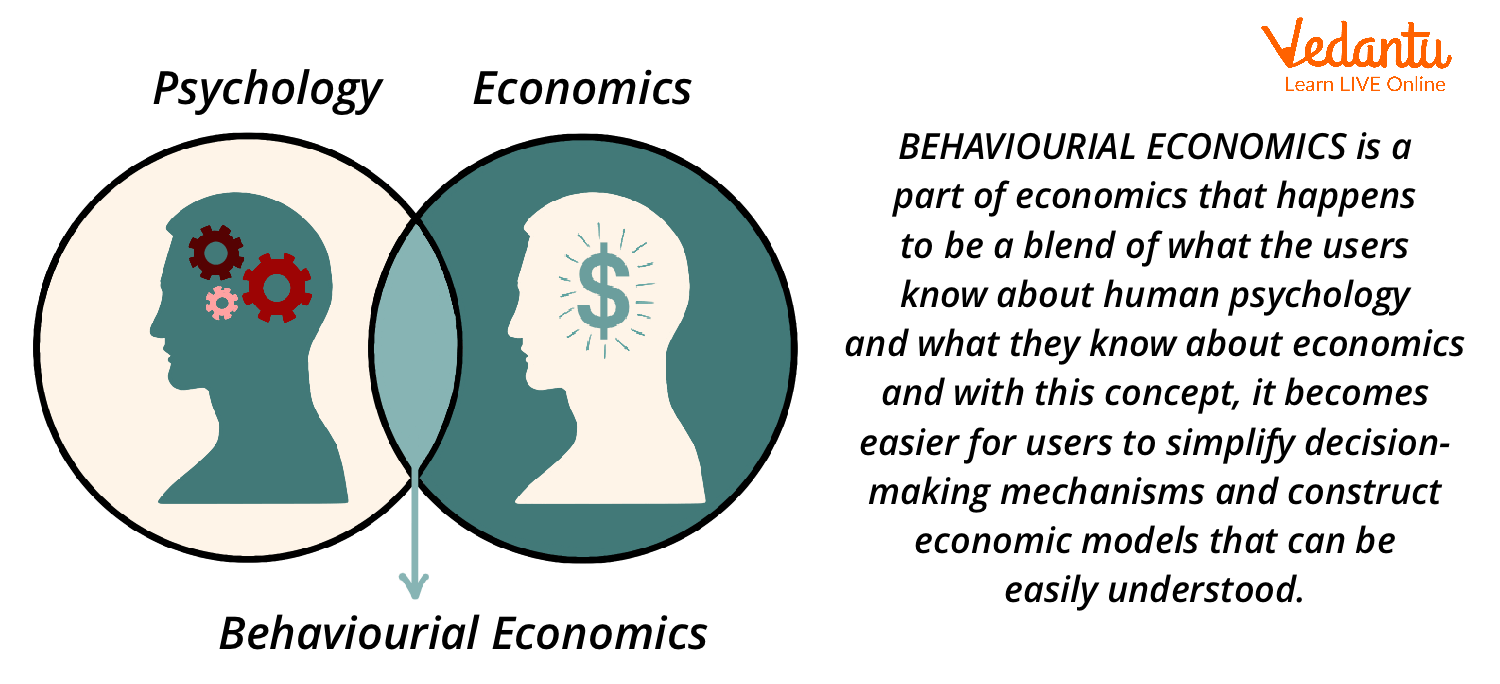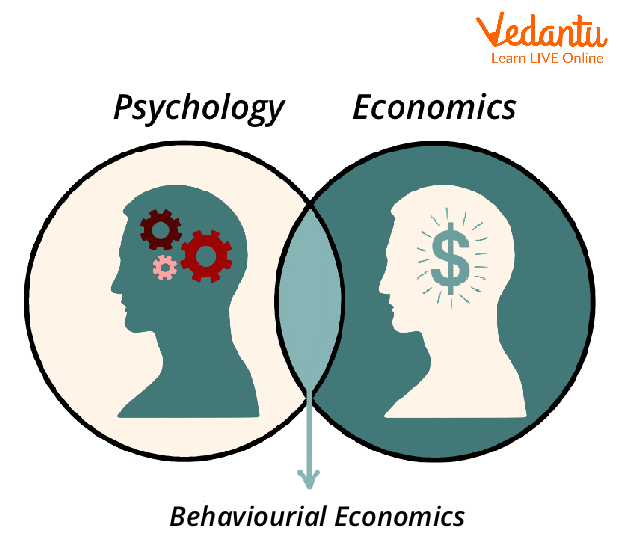




An Overview
Economics is related to humans as the actions of human beings determine the market statistics like demand and supply changes. Human actions are based on the decisions which influence their investment decisions. All the small and big economic decisions humans make are related to the vast changes in market statistics.

Behavioural Economics
If an individual decides to spend more on a certain product, this decision creates more demand for that product in the market, and if the individual decides not to spend, this creates a vacuum in the economy. In this way, every little action of individuals affects the market. Behavioural economics is referred to as the combination of psychology and economics, where prudent economic decisions are being made by individuals based on the proper analysis of the present situation.
Study of Human Behaviour
Human behaviour in the economics arena decides many statistics in the market, both domestic as well as international markets. The economic model of human behaviour tries to explain the reason behind the rational economic decisions individuals make. Behavioural economics explains the reasons why people choose choice A against choice B.

Relation Between Humans and Economics
Concept of Human Behaviour
The concept of human behaviour in economics helps in a better understanding of economic decisions and develops a psychological attitude in humans, which helps in a better decision-making process. Human behaviour decides various statistics in economics and thus makes huge changes in international trade. Behavioural economics uses mental tricks to make better economic decisions.
Behavioural economics is based on psychological experimentation, which develops various theories for humans in making economic decisions which are in their best self-interests. Behavioural economics explains the psychological reasons which lead to the irrational decisions being made by people.
Example of Human Behaviour
Behavioural economics has an impact on human behaviour and society since it affects the decision-making process and, thus, also the consequences thereof. Examples of human behaviour in economic decision-making processes are diverse. Positive reinforcement is the most common example of behaviourism.
Students study for three hours continuously in the hope of getting a reward from their parents after studying seriously. The bigger the reward, the harder the students study. The behavioural approach is useful in treating various diseases. Many mental disorders can be treated with the help of this approach. It is particularly helpful in treating anxiety. Since our behaviour is in our control, we can change our habits and thus our lifestyle by making small and gradual positive behavioural changes.
Summary
Behaviour Economics has its foundation in the Behavioural Approach, which believes that the behaviour of human beings is dynamic and thus can be learned and unlearned. It requires efforts to change behavioural patterns. This behavioural approach is utilised in almost every discipline since it provides a sense of positive affirmation.
Some of the behavioural economics examples are very common. In Healthcare, patients tend to believe they will be cured after treatment. In education, students tend to perform better when provided a small treat. Behavioural Economics, in the same way, focuses on making the best choices and keeping the situations in mind.
FAQs on How Economics Relates to Human Behavior
1. What is the significance of behavioural economics?
Behavioural economics helps investors in making informed and rational economic decisions, and it also explains the reasons why one should choose option A instead of option B. Behavioural economics plays an important role in our daily life as we need to make economic decisions in every step of our routine life ranging from purchasing vegetables to purchasing jewellery. These economic decisions are made rationally while keeping other decisions also in mind. Thus, behavioural economics is an important branch of macroeconomics and applies to almost every aspect of life.
2. What do you understand by the term behavioural economics?
Behavioural economics explains the irrational economic decisions taken by individuals sometimes. It helps understand why a person chooses Choice A instead of Choice B. Behavioural economics also seeks to explain how irrational economic decisions tend to affect an individual. Behavioural economics explains the reasons behind irrational decisions made by an individual. As humans have emotions, distractions, and varying self-control, they sometimes choose an option which is not rational and thus get affected afterwards.
3. What are the applications of behavioural economics?
The applications of behavioural economics are the following:
Behavioural economics is used by governments while making policies to get proper insights into economic decisions.
Businesses use behavioural economics in their business strategies.
It finds application in behavioural finance, which needs critical decision-making power in the capital market.
Behavioural economics also finds application in a middle-class household since every decision regarding a big or small purchase is made keeping in mind the economic condition of the house.























